A CIBIL score is a credit score in India, and it ranges from 300-900. It is used by banks and financial institutions to assess an individual’s creditworthiness and the likelihood of them repaying a loan. The higher the CIBIL score, the better the creditworthiness.
To improve your CIBIL score, you should:
- Make sure to pay all your bills and credit card payments on time
- Keep your credit card balances low
- Avoid applying for too many loans or credit cards at once
- Dispute any errors on your credit report
- Maintain a mix of credit, such as a mix of credit cards, personal loans, and home loans.
It may take some time to improve your CIBIL score, but by consistently practicing the above steps, your score should gradually increase.
What Is CIBIL Score
A credit score is a numerical representation of an individual’s credit history, based on information contained in their credit report. The score is calculated using various factors such as payment history, outstanding debt, credit utilization, and credit history length. A higher CIBIL score indicates a better credit history and a lower risk of default, and it makes an individual more likely to be approved for credit or loans. A lower score, on the other hand, may indicate a higher risk of default, which can make it more difficult to obtain credit or loans.
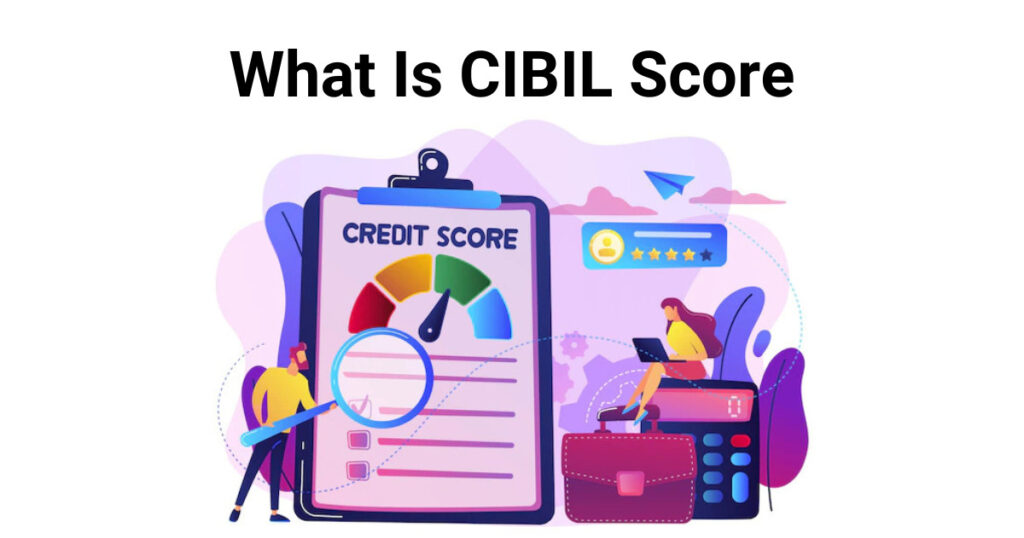
How to Improve CIBIL Score
Improving your CIBIL score can help you become more attractive to lenders and increase your chances of being approved for credit or loans. Here are some steps you can take to improve your CIBIL score:
- Pay all your bills and credit card payments on time: Late payments are one of the biggest factors that can negatively impact your CIBIL score.
- Keep your credit card balances low: High credit card balances can negatively impact your score. Try to keep your balances below 30% of your credit limit.
- Avoid applying for too many loans or credit cards at once: Every time you apply for credit, it can leave a hard inquiry on your credit report, which can lower your score.
- Dispute any errors on your credit report: Review your credit report for any errors or inaccuracies, and dispute them with the credit bureau.
- Maintain a mix of credit: A mix of different types of credit, such as credit cards, personal loans, and home loans, can help boost your score.
- Keep your credit report consistent: Be consistent with your personal information and make sure it’s accurate.
- Keep an old credit history: Keep an old credit account open, even if it’s not in use. Old credit history can have a positive effect on your score.

It may take some time to improve your CIBIL score, but by consistently practicing the above steps, your score should gradually increase.
Do Not Default on Payments
Defaulting on payments is one of the worst things you can do for your CIBIL score. When you default on a payment, it means that you have failed to make a payment when it was due. This can have a severe negative impact on your credit score and can make it more difficult to obtain credit or loans in the future.
When you default on a payment, the creditor will typically report the delinquency to the credit bureaus. This can cause your CIBIL score to drop significantly, and it can stay on your credit report for up to 7 years.
To avoid defaulting on payments, it’s important to stay on top of your bills and credit card payments. Set up reminders for yourself or automate payments if necessary. If you’re having trouble making payments, reach out to your creditors as soon as possible to discuss options such as a payment plan or loan modification.
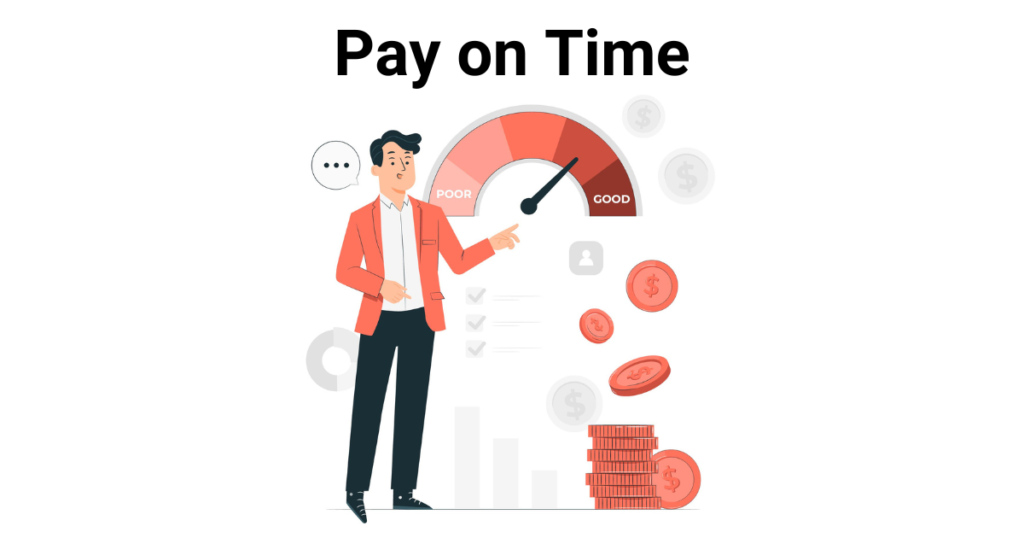
In short, defaulting on payments is a very serious matter and can have long-term negative effects on your credit score and financial well-being, so it’s important to avoid it at all costs.
Avoid Taking too much Debt
Taking on too much debt can have a negative impact on your CIBIL score. When you have a lot of outstanding debt, it can indicate to lenders that you are overextending yourself financially and may be at a higher risk of defaulting on your loans.
High levels of debt can also lower your credit utilization ratio, which is one of the factors that affect your CIBIL score. Your credit utilization ratio is the amount of credit you are using compared to the amount of credit you have available. A high ratio can indicate to lenders that you are using too much credit and may be at a higher risk of defaulting on your loans.
To avoid taking on too much debt, it’s important to be mindful of your spending and to only borrow what you can afford to repay. Before taking on any new debt, consider whether it’s necessary and whether you can afford the payments.

If you already have a lot of outstanding debt, it’s important to take steps to pay it down as quickly as possible. This can include creating a budget, increasing your income, or consolidating your debt to reduce the number of payments you need to make each month.
In short, taking on too much debt can lower your CIBIL score and make it more difficult to obtain credit or loans in the future. It’s important to be mindful of your spending and to only borrow what you can afford to repay.
Check Your CIBIL Report for Mistakes and Rectify Them
To check your CIBIL report for mistakes and rectify them, you can follow these steps:
- Visit the CIBIL website and request a copy of your credit report.
- Review the report carefully and look for any errors or inaccuracies.
- If you find any mistakes, contact the credit bureau and the lender or credit card issuer who reported the mistake.
- Provide any documentation that supports your claim of an error, such as a copy of a bill or statement.
- The credit bureau and lender or issuer will investigate your claim and make any necessary corrections to your credit report.
- Wait for the investigation to be completed and request a new copy of your credit report to ensure that the mistakes have been corrected.
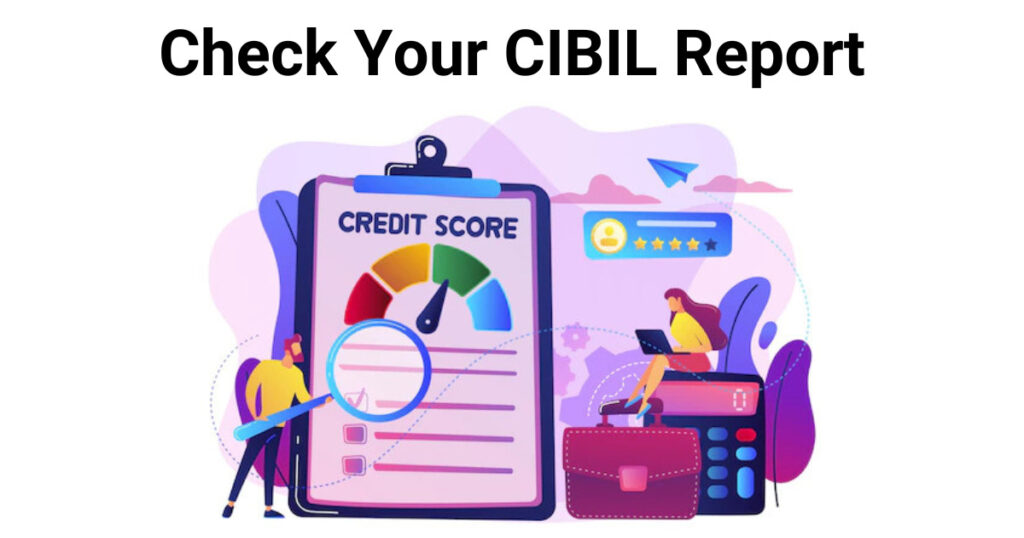
It’s important to note that you can also contact the Credit Information Companies (Regulation) Act, 2005 (CICRA) in case of any dispute resolution with CIBIL.
Repay Credit Card Dues on Time
Repaying your credit card dues on time is crucial to maintaining a good credit score. Here are some steps you can take to ensure that your credit card payments are made on time:
- Set up automatic payments: Many credit card issuers offer automatic payment options that allow you to schedule your payments in advance. This way, you won’t have to worry about forgetting to make a payment.
- Make payments early: If you know that you will have a busy schedule or be away from home, make your payment early to ensure that it is received on time.
- Keep track of due dates: Mark the due dates for your credit card payments on your calendar or set reminders on your phone so that you don’t forget.
- Pay more than the minimum: Paying the minimum amount due on your credit card will help you avoid late fees, but it will also result in you paying more interest over time. Try to pay more than the minimum amount due each month to reduce your overall debt.
- Contact the issuer if you are unable to pay: If you are having financial difficulties and are unable to make a payment, contact your credit card issuer as soon as possible. They may be able to work out a payment plan with you.
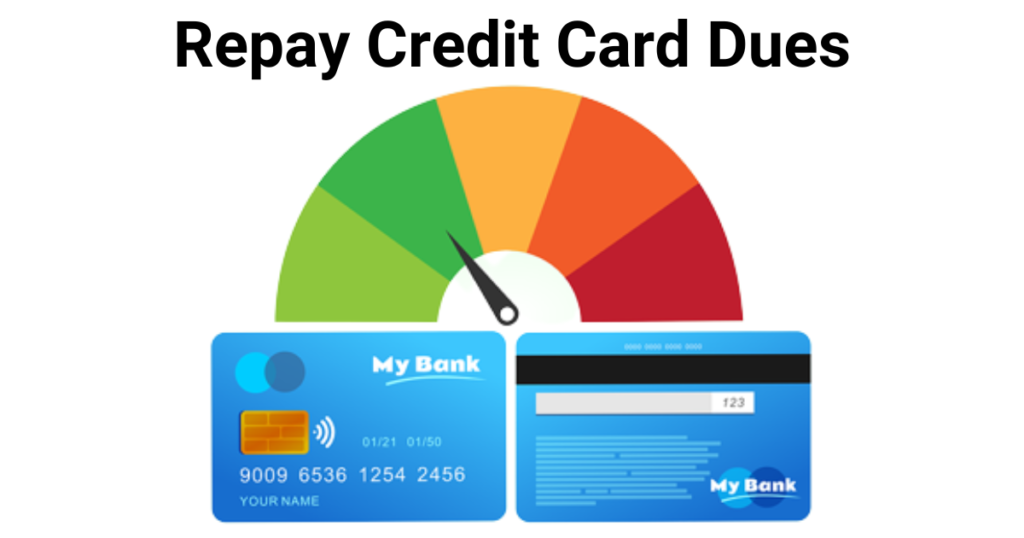
It’s important to note that paying your credit card dues on time will not only help you maintain a good credit score, but it will also help you avoid late fees and high-interest charges.
Keep a Check on Your Credit Report
Keeping a check on your credit report is an important step in maintaining a good credit score and identifying potential errors or fraud. Here are some steps you can take to keep a check on your credit report:
- Get a copy of your credit report: You can obtain a free copy of your credit report once a year from each of the three major credit bureaus (Equifax, Experian, and TransUnion) in India through CIBIL.
- Review your credit report carefully: Look for any errors or inaccuracies, such as incorrect personal information, accounts that do not belong to you, or late payments that you know you made on time.
- Dispute any inaccuracies: If you find any mistakes on your credit report, contact the credit bureau and the lender or credit card issuer who reported the mistake. Provide any documentation that supports your claim of an error, such as a copy of a bill or statement.
- Check for fraudulent activity: Look out for any suspicious activity on your credit report, such as accounts you did not open or inquiries from companies you did not apply for credit with.
- Monitor your report regularly: Review your credit report at least once a year and more frequently if you notice any suspicious activity or if you suspect that you have been a victim of identity theft.
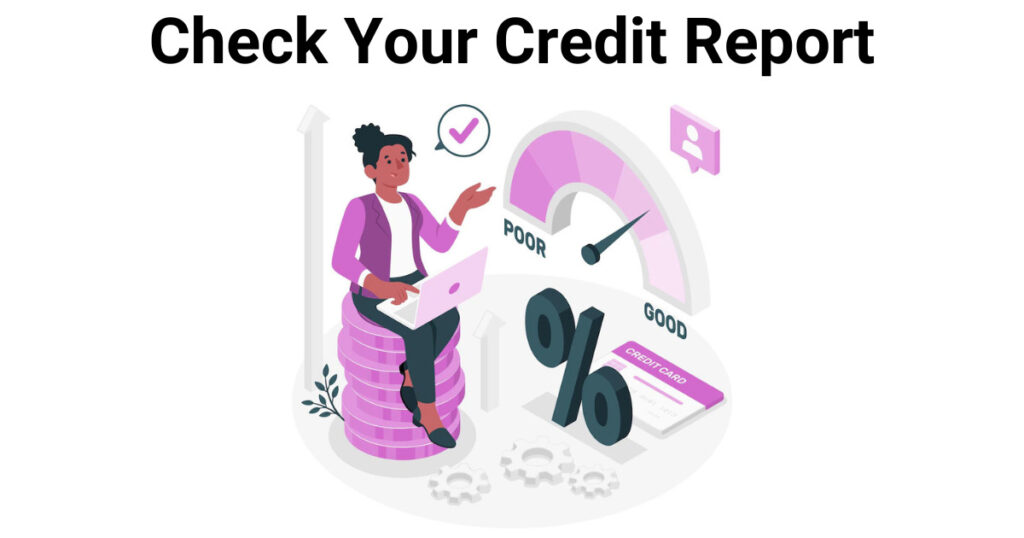
It’s important to note that monitoring your credit report will not only help you maintain a good credit score, but it will also help you identify and address any potential errors or fraud in a timely manner.
Why Improve Your CIBIL Score
Improving your CIBIL score can have many benefits, including:
- Increased chances of getting approved for credit or loans: With a higher CIBIL score, you are considered a lower risk to lenders, and as a result, you are more likely to be approved for credit or loans.
- Lower interest rates: If you are approved for credit or loans, you may be offered lower interest rates with a higher CIBIL score, which can save you money in the long run.
- More credit options: With a higher CIBIL score, you may have access to more credit options, such as credit cards with higher limits or more favorable terms.
- Better chances of getting a job: Some employers may check your credit score as part of the hiring process, so a higher score could give you an advantage when applying for jobs.
- Improve your financial stability: Having a good CIBIL score can give you more financial stability, as you will be more likely to be approved for credit or loans when needed.
- Negotiate better terms on credit or loans: With a good CIBIL score, you can negotiate better terms on credit or loans, such as lower interest rates, lower processing fees, and higher loan amounts.
- Build a better financial future: Improving your CIBIL score is an important step in building a better financial future for yourself. It can help you achieve your financial goals, such as buying a house or starting a business.
Overall, a good CIBIL score is an important aspect of your overall financial health and can have a significant impact on your ability to access credit and loans, and the terms on which they are offered.
What is a Good CIBIL Score
A good CIBIL score is generally considered to be 750 or above. A score in this range indicates that you have a strong credit history and are considered a low risk to lenders. A score of 750 or above makes you more likely to be approved for credit or loans and to be offered more favorable terms, such as lower interest rates.
However, it’s worth noting that the definition of a “good” CIBIL score can vary depending on the lender’s criteria and the type of credit or loan you are applying for. Some lenders may have a higher threshold for a “good” score, while others may have a lower threshold.
It’s also important to note that a good CIBIL score is not the only factor that lenders consider when evaluating your creditworthiness. They may also take into account factors such as your income, employment history, and overall financial situation.
In general, a score of 750 and above is considered a good score, but it’s always best to check the lender’s criteria.
How is Your CIBIL Score Calculated
Your CIBIL score is calculated based on the information in your credit report. The credit report contains information about your credit history, including the types of credit you have (such as credit cards, loans, and mortgages), the length of your credit history, payment history, and outstanding debt.
The CIBIL score is a three-digit number between 300 and 900, with a higher score indicating a lower risk of default. The score is calculated using a proprietary algorithm that takes into account the information in your credit report.
Here are the factors that are considered when calculating your CIBIL score:
- Payment history: Late or missed payments can have a negative impact on your score.
- Credit utilization: The amount of credit you have used compared to your credit limit can affect your score. High credit utilization can indicate financial stress.
- Length of credit history: A longer credit history can help improve your score.
- Types of credit: A mix of different types of credit, such as a mortgage, credit cards, and personal loans, can help improve your score.
- Credit inquiries: Multiple credit inquiries in a short period of time can have a negative impact on your score.
It’s important to note that the CIBIL score is based on credit information shared by member banks and financial institutions and it’s a dynamic score, it keeps on changing based on your credit behavior.